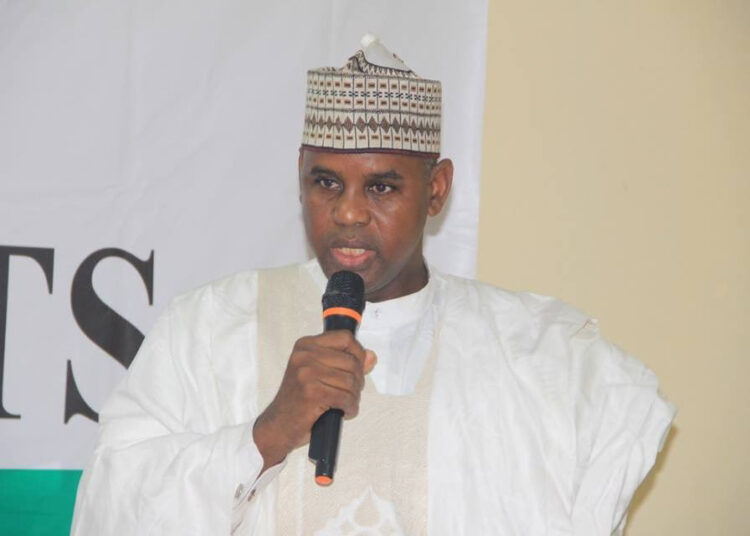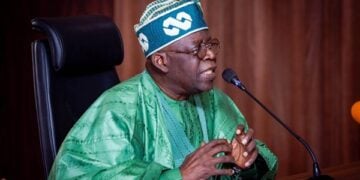The Minister of State, Federal Ministry of Works, Muhammad Bello Goronyo, Esq, has pledged the Federal Government’s support to the Office of the Surveyor General of the Federation (OSGoF) to achieve optimal performance.
He committed today, Wednesday, 27 November 2024, while on a Familiarisation Tour of the Agency.
In a statement, the Minister, Mohammed Ahmed, Director of Press, said the visit was crucial. It allowed him to learn firsthand about happenings within the OSGoF and its critical role in advancing the nation’s economic and social development.
He said, “You cannot achieve your desired goal without accurate data. This Office has been working for over 100 years, and because of technological advancement, a lot of equipment has become obsolete.”
He said there was an increased need to bring the agency up to speed with the modern times because many MDAs rely on the OSGoF to perform optimally, which is critical to national development.
The Minister also commended the Office of the Surveyor General of the Federation that he has been doing very well despite the challenges of funding occasioned by meagre resource allocation from the national budget.
He promised to explore possibilities for assisting the Agency in carrying out its core mandates and addressing Staff welfare matters.
He also pledged to investigate the provision of additional Active Control Points (COPS) to aid the Office in performing its duties.
The Minister said, “I am glad that I am here, and I thank the Office of the Surveyor General of the Federation for the warm reception. We will continue to engage and collaborate to have a very fruitful engagement.”
Earlier, the Surveyor General of the Federation, Surv Abdulganiyu Adebomehin, thanked the Honourable Minister of State for paying the visit to the Office, which offers them a unique opportunity to bring him up to speed with their mandates, modest achievements, challenges, and prospects.
The Surveyor General informed us that the OSGoF is one of the oldest offices in the country, and the Constitution of the Federal Republic of Nigeria also recognises it.
He further noted that the Office has much to offer the country and the outside world.
He said, “The duties of the Office transcend popular cadastral work, which is a four-corner job. Modern equipment is now used to monitor aircraft take-off and landing.”
Reflecting on the achievements of the Office, he briefed the Minister that, amongst other things, the Office provides the Government and the general public with relevant map products and alternatives through user requirement analysis, capacity building to establish best practices in geospatial data management by collaborating with Development Partners, making appropriate policies that will align with the changing roles of surveying and mapping, creating and maintaining a National Repository of Metadata for all trigonometrical, cadastral, topographical, hydrographic and geodetic data in the Federation, developing and maintaining Survey Units in relevant Federal MDAs and supporting MDAs in the areas of mapping and geospatial information.
Surv Adebomehin also noted that the Office is bedevilled with inadequate budgetary allocations and untimely releases, which negatively affects performance, inadequate office accommodation, ageing staff strength, inadequate field vehicles, and inadequate Active Control Points (COPS), among other challenges confronting the establishment.
The Surveyor General further stated that the use of data for national development must be balanced. “There’s a need for us to bring all this data together, collaborate as one entity and use it for decision-making,” he opined.
Afterwards, the Surveyor General conducted his guest round facilities in the Office, revealing that the FCDA has graciously permitted OSGoF to use the landed property behind it to construct more office space. He further stated that some Center for Control and Analysis equipment is new but inadequate.
While responding to correspondents’ questions, Goronyo expressed his appreciation for the excellent work being done at the Agency. He maintained that data collection, collation, and dissemination are critical to national development, as no Nation achieves growth without adequate mobilisation of data for mapping, food security, curbing insecurity, and more.











